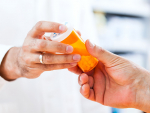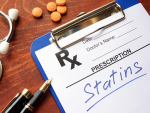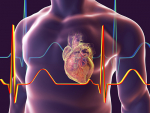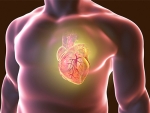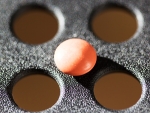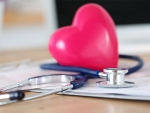Displaying items by tag: division of cardiovascular disease
A new study found that increasing blood thinners in discharged patients with medical illness reduces their risk of blood clots.
These findings suggest that large geographic treatment disparities in high-intensity statin use after a heart attack are poorly understood and require further research and intervention.
Tagged under
A peptide used as the “gold standard” for diagnosis heart failure loses predictive ability in African Americans.
Tagged under
UAB investigators have outlined the incidence and implications of atrial fibrillation after transcatheter aortic valve implantation and surgical aortic valve replacement.
Heart failure after a heart attack is a global epidemic, with 50 percent of patients dying within five years.
UAB researchers were awarded a grant for new hybrid technology that could change diagnostic standards for patients.
Tagged under
Tagged under
According to the American Heart Association’s Heart and Stroke Statistics, nearly half of all adults in the United States have some type of cardiovascular disease.
Investigators from UAB have examined the incidence, or new onset, of cardiovascular disease and in-hospital deaths in patients admitted with severe sepsis.
Tagged under
Study suggests that weight loss, even if associated with intermittent weight gain, is worthwhile in that there appears to be no harm and possible benefit in terms of cardiovascular outcomes.
Tagged under
WomenHeart: The National Coalition for Women with Heart Disease, an organization dedicated to heart disease education and patient support.
Tagged under
UAB Hospital practice areas honored with the “Best Hospital” designation include obstetrics, bariatric surgery, heart care, cancer care and breast cancer.
Tagged under
Investigators from UAB have summarized the impact of the reimbursement gap between Medicaid and private insurance on management and in-hospital outcomes among patients admitted for STEMI.
Tagged under
Using SeamlessMD, UAB Medicine provides patients with a digital experience through which they can access information about their surgeries via cellphone, tablet or computer — from surgery preparation to the recovery process.
Tagged under
New wearable health monitoring devices can help you stay informed, but should they be relied on heavily?
Tagged under
